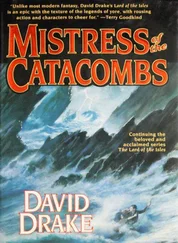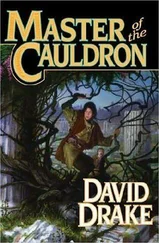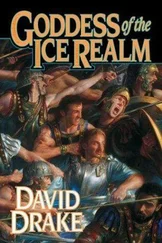David Drake - Out of the waters
Здесь есть возможность читать онлайн «David Drake - Out of the waters» весь текст электронной книги совершенно бесплатно (целиком полную версию без сокращений). В некоторых случаях можно слушать аудио, скачать через торрент в формате fb2 и присутствует краткое содержание. Жанр: Фэнтези, на английском языке. Описание произведения, (предисловие) а так же отзывы посетителей доступны на портале библиотеки ЛибКат.
- Название:Out of the waters
- Автор:
- Жанр:
- Год:неизвестен
- ISBN:нет данных
- Рейтинг книги:3 / 5. Голосов: 1
-
Избранное:Добавить в избранное
- Отзывы:
-
Ваша оценка:
- 60
- 1
- 2
- 3
- 4
- 5
Out of the waters: краткое содержание, описание и аннотация
Предлагаем к чтению аннотацию, описание, краткое содержание или предисловие (зависит от того, что написал сам автор книги «Out of the waters»). Если вы не нашли необходимую информацию о книге — напишите в комментариях, мы постараемся отыскать её.
Out of the waters — читать онлайн бесплатно полную книгу (весь текст) целиком
Ниже представлен текст книги, разбитый по страницам. Система сохранения места последней прочитанной страницы, позволяет с удобством читать онлайн бесплатно книгу «Out of the waters», без необходимости каждый раз заново искать на чём Вы остановились. Поставьте закладку, и сможете в любой момент перейти на страницу, на которой закончили чтение.
Интервал:
Закладка:
"Here will I found a city," boomed Hercules. "In later years, great leaders will come here in the name of the Caesars, my equals in Olympus!"
Even granting that his mask contained a resonating chamber, the fellow's voice was impressive. Pulto must have been thinking the same thing, because he muttered, "That one's got the lungs of a first centurion on him. Wish he wasn't dressed like a clown, though."
Corylus chuckled. "I quite agree with you, old friend," he said, "but the impresario had literary justification for each of his choices. Well, a kind of justification. Probably because writers in the past were just as determined as Saxa is to give their audiences the most impressive show they could."
The Hercules of ancient legend carried a plain oak branch for a club and wore a lion-skin cloak. Later myth made the skin that of the gigantic Nemean lion, sprung from the blood of the monster Typhon. No writer before now had suggested that the lion's skin had been sprinkled with gold dust so that the spectators in the highest seats of the theater could see it sparkle, but Corylus supposed that might be an aspect which had simply gone unremarked in the past.
Euripides had given Heracles a brazen club, the gift of the god Hephaestus. Saxa had gone the Greek one better by gilding the club, but either metal was too sophisticated for the rustic hero.
Heracles' armor-here golden-and the shield banded with gold, silver and ivory had even more ancient evidence: the poet Hesiod, second in time and-some said-second in literary importance to Homer himself.
Even a great writer could come up with a bad idea in search of an effect, though. When one did, he opened a passage through which a Replacement Consul of the future could drive whole herds of absurdity.
Saxa wouldn't have written the mime himself, of course. For a moment, Corylus wondered if Varus had. No, he would've said something. And besides, Varus had given up dramatic writing after his public reading last month.
Corylus glanced again at his friend and saw that he was jotting notes with a short bronze stylus on a tablet. Varus had decided to become a historian of the sacred rites of the Republic. That meant not only things like the auguries attending the appointment of a consul, but also theatrical performances like this one: they too were religious in character.
If something went wrong with a mime, a gladiatorial spectacle, or a beast hunt, it had to be repeated: restarted, in official terminology. That clause had been used to extend public events beyond the limits set for them by ritual.
In the past, a rich man could keep a spectacle going as long as he thought necessary to burn his name into the memory of the electorate. That wasn't required now that officials were elected only after being nominated by the Emperor. Indeed, a thoughtful senator might conclude that it wasn't entirely wise to call the Emperor's attention to one's wealth and popularity.
New "denizens of the deep" flowed along the channel: a cuttlefish lifting its arms, and a seahorse on which a painted triton rode. Floats in water so shallow wouldn't bear the weight of an actor, but overhead performed three rope dancers dressed as sea-nymphs in diaphanous silk.
Hercules gestured with his left hand and said, "Blessed will the people of this land be…!"
Flats against the rear wall of the stage rotated on vertical axles to display city walls beyond which red roofs peeked. "… when my successor arrives to dispense the justice and mercy of godlike Caesar!"
"Say, how are they doing that?" Pulto said in a low voice. He nodded toward the stage. "The sea, I mean. That really looks…"
The right corner of the stage had gotten darker. Corylus frowned. He couldn't see the rope dancers any more, and the water had become the dusty gray color of old lead.
Indeed, Corylus couldn't see the back of the stage: a sea covered with an angry chop seemed to stretch into the distance. The serpentine neck that lifted momentarily and disappeared again certainly didn't look like a bobbing flat.
"By Hercules!" Pulto said. "That looks bloody real!"
The oath had nothing to do with this mime. Hercules was the common man's god, a good-natured fellow who drank too much and got into fixes, and who therefore could understand the problems of an ordinary soldier or farmer.
Corylus looked at the Tribunal. Saxa was beaming. There may have been a touch of surprise in back of his pleased expression, but he didn't appear concerned.
Varus and Pandareus leaned forward transfixed. Varus continued to jot notes with a stolid determination which delighted Corylus but didn't surprise him.
Varus consistently displayed as much physical courage as anyone Corylus had witnessed on the frontiers. There were plenty of men in the legions who could stand before a charge of screaming Germans, but there were very few who could have done what Varus was doing now. Not if they knew what Varus-and Corylus-knew about what was really happening.
The "city" of painted canvas took on depth. The walls shone brighter than the armor of Hercules, who now cowered on his rock, and the tiled roofs had risen into high crystal towers.
"How are we seeing this?" Corylus said. Pulto might have been able to hear him, but he knew he was really speaking to himself, attempting to impose reason on something beyond all reason. "It's too clear!"
He wished he were with Pandareus and Varus now. They were talking in the Tribunal, two learned men discussing in the light of their philosophy the events they observed.
I am a citizen of Carce, a soldier and the son of soldiers. I will not flee.
The spectators began to applaud by shuffling their feet. They think it's a stage effect! Corylus realized. They can't imagine anything else that it might be.
The things Corylus had seen during the past ten days let him consider a broader range of possibilities than the general audience did, Gaius Saxa included. Ignorance would have been less uncomfortable.
Man-sized figures moved on the walls of the city, and the peaks of individual waves flicked foam into the breeze. A painter might manage the precision, but not the movement. No human eye could make out such detail from where Corylus sat. The spectators stamping delightedly from the base of the Temple of Venus at the back of the theater were hundreds of feet still farther away.
The sky continued to darken. Corylus could no longer see the stage, but the city and the sullen ocean spread to the limits of vision.
Tardus remained seated, unaffected by the scene or the clamor it provoked. His three companions had risen to their feet and were chattering with animation. Their words were lost in the applause and the howl of a wind that Corylus could hear but not feel.
The foreigners looked as frightened as Corylus felt. I am a citizen of Carce…
The darkness spread, now engulfing the Tribunal. The last thing Corylus saw as he glanced upward was Hedia leaning forward for a closer look at what was before her. Her profile was cool and perfect.
I wonder if I'm going mad? Hedia thought. The idea caused her to bleat a laugh. Would that be a good thing or a bad one? Something that can be treated with a dose of hellebore would be better than what it means if I'm seeing what's really there.
"Isn't it wonderful!" Saxa said, more excited than Hedia remembered him ever being during sex. "Why, Meoetes didn't suggest he was going to do this! Look at how clear the walls of Olisipo are! Marvelous!"
Hedia glanced at her husband, wondering if he were prattling nonsense to mask his fear. He wasn't. Saxa thought he would see a painting of the capital of Lusitania. He saw what he expected, stagecraft, and he was delighted that it was so good.
She patted the back of his hand with a wry smile; he gripped her fingers in excitement. Obviously, he's seeing the same thing I am, so I'm not mad. Well, hellebore probably doesn't cure madness anyway.
Читать дальшеИнтервал:
Закладка:
Похожие книги на «Out of the waters»
Представляем Вашему вниманию похожие книги на «Out of the waters» списком для выбора. Мы отобрали схожую по названию и смыслу литературу в надежде предоставить читателям больше вариантов отыскать новые, интересные, ещё непрочитанные произведения.
Обсуждение, отзывы о книге «Out of the waters» и просто собственные мнения читателей. Оставьте ваши комментарии, напишите, что Вы думаете о произведении, его смысле или главных героях. Укажите что конкретно понравилось, а что нет, и почему Вы так считаете.












